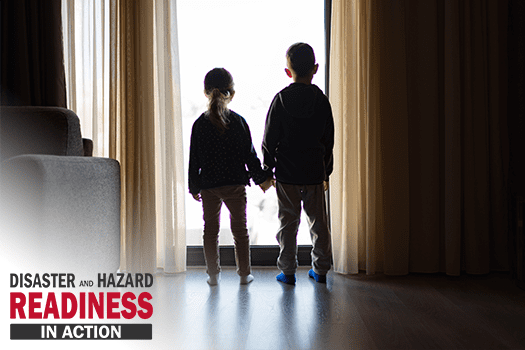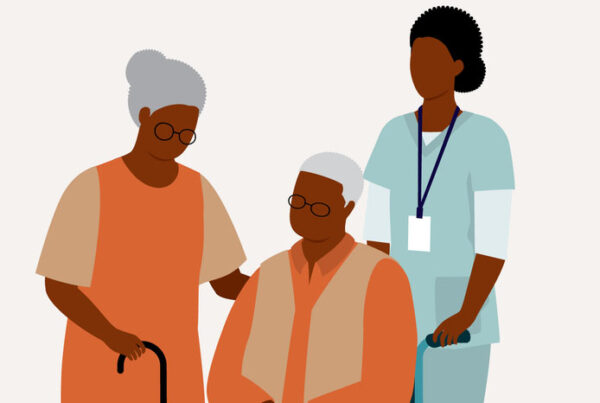By: Jason Jowers
On March 10th, 2021, OneOp hosted the webinar, “Supporting Parents and Children Through Hazards and Disasters, ” part of the 2021 Military Family Readiness Academy series Disaster and Hazard Readiness in Action.
Our 2021 MFRA has been a huge success and we have shared lots of great resources that prepare providers to support the readiness and well-being of military families during disasters and hazards in areas such as caregiving, children and family needs, nutrition, and finances.
For this webinar session, we wanted to provide tips and strategies for service professionals that have been working with military families over the past year, specifically during the COVID-19 pandemic. We also wanted to address the importance of planning for increases in domestic violence and child maltreatment during emergencies and explore what serving victims in this context looks like.
We were joined in this webinar by two presenters. Beth Meeks is the Director of Capacity and Technical Assistance at the National Network to End Domestic Violence (NNEDV), and Dr. Sara Johnson is an Associate Professor of Pediatrics at the Johns Hopkins School of Medicine and Co-Director of the Ruth and Norman Rales Center for the Integration of Health and Education. They both shared their expertise in working with families during times of crisis.
We wrapped up with a Q & A Panel discussion, where Kathleen Chiarantona, from the Family Advocacy Program Office of Military Family Readiness Policy within the Department of Defense answered questions from participants.
Webinar Highlights
We wanted to share highlights and provide strategies and resources that could be helpful when working with military children and families.
- The session began with Dr. Sara Johnson sharing examples and statistics of how the COVID-19 pandemic has affected parents and families over the past year, citing rises in anxiety, stress, depression, and domestic violence incidents.
- Dr. Johnson shared the “building blocks” of child and well-being; the specifics needed for families to stay happy and healthy which include economic stability, health, routines, and family/social connections.
- According to recent research, one of the biggest changes for families is that conduct problems have increased for many children. The main reason for this being a lack of structured routines for families, which is a primary area that has been thrown into disarray for families due to the ongoing health crisis.
- Johnson concluded by talking about the biology of toxic stress and the impact of trauma on children and child behaviors. She shared strategies and interventions that parents and clinicians can try to help the kids in their lives.
- Beth Meeks began her presentation by talking about the importance of safety plans for families in the event of a disaster and exploring ways to construct safety plans within the family.
- Plans included getting connected with resources in the community to help those in need during a natural disaster.
- She shared some issues that survivors of disasters face during times of crisis, specifically centered on domestic violence issues and intimate partner violence.
- Beth spoke on the importance of building resilience and connections within communities for folks to come together during times of crisis.
- Kathleen Chiarantona led a panel discussion with participants to go over questions and reflection prompts for a very interactive portion of the session.
Archived Viewing and CE Credit Info
If you missed the live event you can watch the archived recording on our YouTube channel at the event page here. Free Continuing Education Credits for this event are still available for licensed social workers, professional counselors, case managers, certified family life educators, family therapists, as well as CE credits through the Early Intervention Training Program (EITP) at the University of Illinois for providers in Illinois. These CE credits are available through March 2022.













